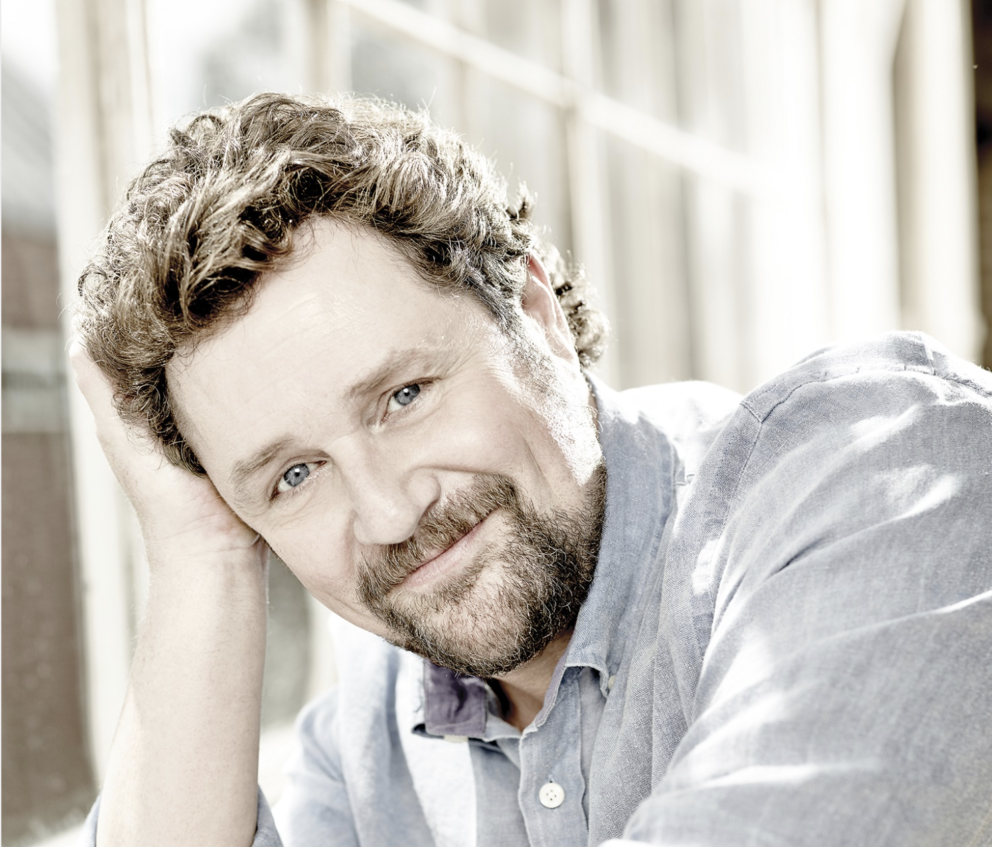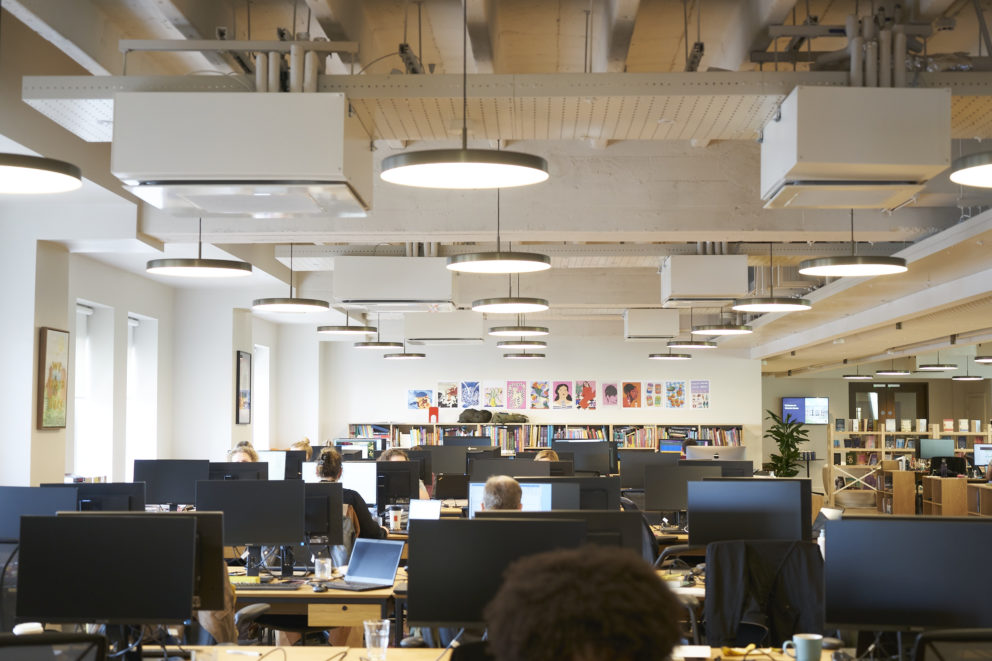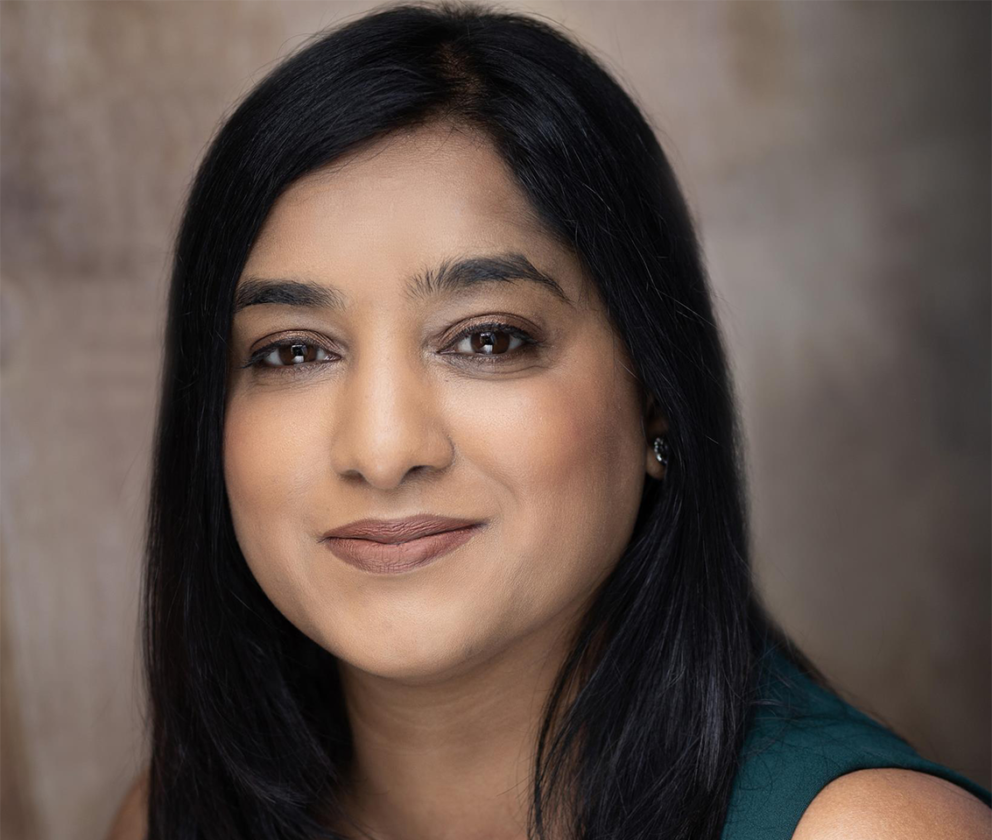Jacqui’s story: “Cancer changed my life. I barely recognise the person I was 21 years ago.”
Diagnosed at 31, Jacqui’s journey and fight with breast cancer did not start and end with diagnosis and treatment. Like many people who suffer from the disease, her journey dramatically changed her life over the course of 21 years as she faced highs and lows in her personal life and with PTSD from her years of treatment.
The following essay is an extract adapted from Breast Cancer and Me – a new anthology published by John Blake in partnership with ASDA’s Tickled Pink foundation in recognition of Breast Cancer Awareness Month 2019. All profits from the publication go to the Tickled Pink Foundation and the charities they support.
“When I was diagnosed, I searched women’s magazines for positive stories about cancer. At the time I really wanted to see an example of someone who had come through their treatment and gone on to live a healthy and fulfilling life. But I struggled to find anything that gave me hope. Looking back, I realise I wanted to see me, where I am now.”
Before I was diagnosed with breast cancer I used to be terrified of needles. When I was pregnant with my first daughter Steph, I was so filled with fear and anxiety I’d pass out during routine blood tests.
The Jacqui before diagnosis could never have imagined how she’d cope with what was ahead of her. At the end of my treatment I had little fear left in me, least of all of needles. I got my first tattoo – just a little rose on my right shoulder. I went on to have four more. I’m most proud of the one I have on my right arm – it says ‘fight like a girl’, with the pink ribbon replacing the ‘i’ in fight. It’s a reminder to me that not only that I conquered my fear of needles, but that I fought and survived my illness. Cancer changed my life. I’m stronger because of it and barely recognise the person I was 21 years ago.
It started in May 1998. I was 31 and married to my childhood sweetheart. Our daughter Steph was eight years old. We’d just bought a house and new car. We lived in Hull and I worked as a nurse for the NHS in a psychiatric hospital.
“Cancer changed my life. I’m stronger because of it and barely recognise the person I was 21 years ago.”
One day I was restraining a particularly distressed patient. She lashed out at me and grabbed my right breast. It was incredibly painful, and my breast felt tender and sore. A few days later at the weekend in bed I threw my hand up and felt a tear in my flesh and a lump that hadn’t been there before. Within two weeks I’d met my consultant Mr Kerrin, a breast cancer specialist.
I didn’t panic when he first confirmed that the lump was cancerous. It wasn’t until the moment that I was waiting to go in for my operation that I felt scared. My type of breast cancer was particularly aggressive – I had a grade 3 cylindrical tumour. They decided to perform a wide local excision with axillary lymph node clearance. In layman’s terms, this means that I had a partial mastectomy.
In many ways my priorities shifted. I put all my energy into getting better for my daughter and family. Steph became my main focus – I’d created this little life, now I had to stay alive for her. She needed her mum and I wanted to be her rock. But I could never have foreseen just how much of a rock she would turn out to be for me. My parents were also extremely supportive. They lived around the corner from me and our houses were separated by a park. My dad would prepare meals for me and carry them through the park to my house. He also brought knives, forks and plates that he’d specially sterilised because of my weakened immune system.
As much as I had amazing support from my family, a year of chemotherapy took its toll on me. Originally, it was predicted my treatment would take about six months, but it stretched out to a year due to complications with my low white blood cell count. Towards the end of June 1999, I was excited to reach the day that what was due to be my last chemotherapy session. But when I arrived at the hospital my immune system, yet again, was too weak and they told me they’d have to push the date back a further week.
It broke me. They had to take me into a separate room to calm me down because I was absolutely hysterical. I’d had enough of dealing with the side effects for the past year – from the vomiting to diarrhea and extreme fatigue. It was simply one week too long to wait.
At the end of August 1999, my family and I were thrilled to receive the news that my medical team couldn’t detect any visible signs of cancer in my body. We were ready to put the whole experience behind us. I returned to work and settled back into married life.
“I’d woken up and the world looked different. I’d found an inner strength within me that I never knew existed … I looked around at all the material possessions in my house and thought, there’s more to life than this.”
I realised that my old routine and way of living wasn’t fulfilling me. I’d woken up and the world looked different. I’d found an inner strength within me that I never knew existed. I’d beaten cancer. I felt as though I could do anything. I realised, after a big argument one day, that the differences between my husband and I were starker than ever, and we’d grown apart. I looked around at all the material possessions in my house and thought, there’s more to life than this. I decided to leave immediately. I took nothing with me except my car keys, denim jacket and Steph. I didn’t even pack a case. I drove to my parents’ house and told them I’d never return. Not long after this I parted ways with my husband and began to look ahead to a completely fresh new start.
By 2002 I’d moved to Beverley in East Yorkshire and married my second husband, Richard. He was 11 years younger than me and had no children from any previous partnerships. We decided we wanted to try for our own. The doctors told me I was in early menopause due to my chemotherapy treatment. We discussed IVF but the medics were adamant it wouldn’t work. I wasn’t devastated by the news because I already had Steph. I had survived cancer. I counted my blessings and no longer took anything in life for granted. Richard and I decided to forget our plans to conceive.
A few months later I began to notice changes to my body. We refused to even entertain the prospect to begin with but one day, when my period was overdue by several weeks, I took Steph to school and bought a pregnancy test. As Richard and I sat and watched the blue lines get brighter and brighter, the joy began to rise within us both. We were absolutely elated and danced around the living room before phoning our parents to tell them the good news. It finally felt as though a line had been properly drawn under my life with cancer. It was the fresh start we’d all been waiting for and it signified my body was healthy and functioning normally.
“My mother said something I’ll never forget: ‘Jacqui, these children are your gifts.’”
Our daughter Alicia was born in March 2004. My obstetrics team told me I was infertile and that there had been a million in one chance of me getting pregnant. When Alicia was only seven months old, a pregnancy test confirmed that we had defied science for the second time. I was pregnant again.
My mother said something I’ll never forget: ‘Jacqui, these children are your gifts.’ Mum was convinced that my children were my ‘little miracles’ sent to me to make up for what I’d suffered during cancer.
By then, it was six years since my treatment for cancer had ended. After my initial treatment I had two mammograms in the following first year, then only once a year. Subsequently, it was decided I only needed one once every three years, to the point where I now attend a mammogram every five years – the same as any other woman in her fifties. Naturally, I was anxious before each one, but I found it very reassuring to have regular check-ups in the initial years after my diagnosis and treatment. It was always a relief to be told there were no detectable signs of cancer.
Looking back, I think the beginning of my anxiety coincided with the check-ups becoming less frequent.
When my son Alfie was about six months old, my friend asked me if I’d talk to her friend, who’d just been diagnosed with breast cancer, about my experiences. I was happy to help and throughout the two months of her diagnosis and treatment we stayed in contact and became close. I visited her in hospital when she had her lumpectomy and supported her throughout the process. After her recovery she had a party to celebrate and thanked me. It was a week later that I began to experience irrational and negative thoughts. I could feel my anxiety starting to spiral out of control. I began to worry about Alicia and Alfie constantly. I’d had them against all odds and was convinced they were going to be taken away from me. One of them only had to sneeze and I’d believe they had meningitis.
It was as though my brain was distorting ordinary events. My mood plummeted and I stopped eating and drinking for two weeks. I spent the majority of my time curled up in a ball on the sofa and wouldn’t leave the house.
During my period of agoraphobia, my negative thoughts about the children turned to myself. I was convinced that my cancer had returned, this time in my ovaries or cervix. I was given a full body scan, blood tests and mammogram. They all revealed that my body had no detectable signs of cancer. But these results still failed to reassure me or lessen my anxiety. I was certain it would return and that I was going to die and leave my kids.
“[My GP] recognised that my symptoms were related to post-traumatic stress disorder (PTSD). I’d buried many emotions and feelings over the years since I’d had cancer … There had been so much change in my life – I’d not given myself a chance to process surviving cancer.”
Fortunately, my family didn’t need to convince me that I had a problem and needed help. I’d worked within the mental health profession and knew my negative thoughts were spiralling out of control. I sought help through my GP. They recognised that my symptoms were related to post-traumatic stress disorder (PTSD). I’d buried many emotions and feelings over the years since I’d had cancer, and these had resurfaced when my friend was ill. Now my body was struggling to deal with them. There had been so much change in my life – from my first marriage breaking up to remarrying and having Alicia and Alfie – I’d not given myself a chance to process surviving cancer.
My doctor referred me for cognitive behavioural therapy (CBT) and put me on antidepressants, which took the edge off my anxiety. My therapist helped me to rationalise my fears and talk through all the changes I’d been through since my diagnosis. I am a lot calmer now. Life continued to send some tough challenges. I had to give up my job as a psychiatric nurse because I’d injured my back restraining someone. In 2012, my second marriage also broke down, which added further financial pressure. I desperately needed some work.
After a brief stint working as a beauty therapist, I took on a role at Asda on the checkouts. I’d known about its Tinkled Pink campaign for a number of years before I started working there and knew it supported Breast Cancer Care and Breast Cancer Now. My mum and I would look out for the Tickled Pink slogan whenever we went shopping.
“The fear of cancer returning never goes away and I still have days where I find it difficult to manage my anxiety, but I’ve come to appreciate how this horrific disease enhanced my life and me as an individual.”
I was really happy to start working for an organisation that supports charities so close to my heart. I worked my way up from the cashiers to visual merchandise in Asda Living, which covers clothing and homeware brands. My current role is general merchandise section leader. Before then I’d dabbled a little in fundraising. I’d run
Race for Life twice – the 5K run for Cancer Research UK. But when I started working at Asda I felt encouraged to get directly involved and take on my own fundraising initiatives for Tinkled Pink. Every October during Breast Cancer Awareness month I decorate the staff canteen pink and bake biscuits and buns to sell. It’s my way of giving back and ensuring that I can help the next woman who’s diagnosed.
I am one of the positive stories. I made it. The fear of cancer returning never goes away and I still have days where I find it difficult to manage my anxiety, but I’ve come to appreciate how this horrific disease enhanced my life and me as an individual. I have a job that I don’t think I would have had the confidence to do before. For the first time in my life I have a best friend, Suzanne. Our colleagues call us ‘Ant and Dec’ because we’re always joking around and have pretty much been inseparable for the past seven years. We’re both big fans of Olly Murs and Robbie Williams and go to see them perform whenever we can.
When I was diagnosed, I searched women’s magazines for positive stories about cancer – this was in the days before access to the Internet and information online was so readily available. At the time I really wanted to see an example of someone who had come through their treatment and gone on to live a healthy and fulfilling life. But I struggled to find anything that gave me hope. Looking back, I realise I wanted to see me, where I am now.


